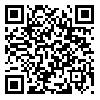Volume 20, Issue 1 (4-2017)
Hakim 2017, 20(1): 27-34 |
Back to browse issues page
Download citation:
BibTeX | RIS | EndNote | Medlars | ProCite | Reference Manager | RefWorks
Send citation to:



BibTeX | RIS | EndNote | Medlars | ProCite | Reference Manager | RefWorks
Send citation to:
Hakimeh Mostafavi, Arash Rashidian. The Role of Lobbying and Conflict of Interests on the Iranian Health System Decision-making. Hakim 2017; 20 (1) :27-34
URL: http://hakim.tums.ac.ir/article-1-1764-en.html
URL: http://hakim.tums.ac.ir/article-1-1764-en.html
1- , arash.rashidian@gmail.com
Abstract: (3909 Views)
The Role of Lobbying and Conflict of Interests on the Iranian Health System Decision-making
Hakimeh Mostafavi (PhD)1, Arash Rashidian (MD, PhD)2*
1 Health Economy, Standard and Health Technology Department, Vice-Chancellor’s Office in Treatment Affairs,
Shahid Beheshti University of Medical Sciences, Tehran, Iran
2 Professor, Department of Health Management and Economics, School of
Public Health,Tehran University of Medical Sciences, Tehran, Iran
Abstract
Background: Health systems attempt to fulfill health goals through evidence-based and value-oriented approaches, but decision-making in this sector is under the influence of some unknown and unexpected factors. The current study aimed at examining the role of lobbying and conflict of interests on the Iranian health system decision-making.
Methods: The literature review and interview with key experts were used in the current qualitative study to collect data. Thirty semi-structured interviews were carried out at micro, meso, and macro levels. Data were analyzed and interpreted through a mixed (inductive/deductive) thematic framework.
Results: Two themes and 6 subthemes were categorized based on the analyses; the theme of “the effects of conflict of interests on health system” with subthemes of effect on plans implementation, effect on intersector relations of national bodies, effect on public decisions, and also the theme of “effects of lobbying on health system” including subthemes of effect on attaining more budget or obtaining extra resources, effect on health technologies buying, and effect on implementation or non-implementation of special plans.
Conclusions: Conflict of interest indicates insufficient monitor of health system authorities, but lobbying can protect patients’ rights, if it is principally and ethically aligned with utilitarianism.
Keywords: Conflict of Interest; Lobbying; Health System; Qualitative Study; Decision-Making
Background: Health systems attempt to fulfill health goals through evidence-based and value-oriented approaches, but decision-making in this sector is under the influence of some unknown and unexpected factors. The current study aimed at examining the role of lobbying and conflict of interests on the Iranian health system decision-making.
Methods: The literature review and interview with key experts were used in the current qualitative study to collect data. Thirty semi-structured interviews were carried out at micro, meso, and macro levels. Data were analyzed and interpreted through a mixed (inductive/deductive) thematic framework.
Results: Two themes and 6 subthemes were categorized based on the analyses; the theme of “the effects of conflict of interests on health system” with subthemes of effect on plans implementation, effect on intersector relations of national bodies, effect on public decisions, and also the theme of “effects of lobbying on health system” including subthemes of effect on attaining more budget or obtaining extra resources, effect on health technologies buying, and effect on implementation or non-implementation of special plans.
Conclusions: Conflict of interest indicates insufficient monitor of health system authorities, but lobbying can protect patients’ rights, if it is principally and ethically aligned with utilitarianism.
Keywords: Conflict of Interest; Lobbying; Health System; Qualitative Study; Decision-Making
Please cite this article as follows:
Mostafavi H, Rashidian A.The Role of Lobbying and Conflict of Interests on the Iranian Health System Decision-making. Hakim Health Sys Res 2017; 20(1): 27-34
*Corresponding Author: Department of Health Management and Economics, School of Public Health, Tehran University of Medical
Sciences, Tehran, Iran. Tel: +98-2188989129, E-mail: arash.rashidian@gmail.com
*Corresponding Author: Department of Health Management and Economics, School of Public Health, Tehran University of Medical
Sciences, Tehran, Iran. Tel: +98-2188989129, E-mail: arash.rashidian@gmail.com
Type of Study: Original |
Subject:
General
Received: 2018/01/22 | Accepted: 2018/01/22 | Published: 2018/01/22
Received: 2018/01/22 | Accepted: 2018/01/22 | Published: 2018/01/22
Send email to the article author
| Rights and permissions | |
 |
This work is licensed under a Creative Commons Attribution-NonCommercial 4.0 International License. |





